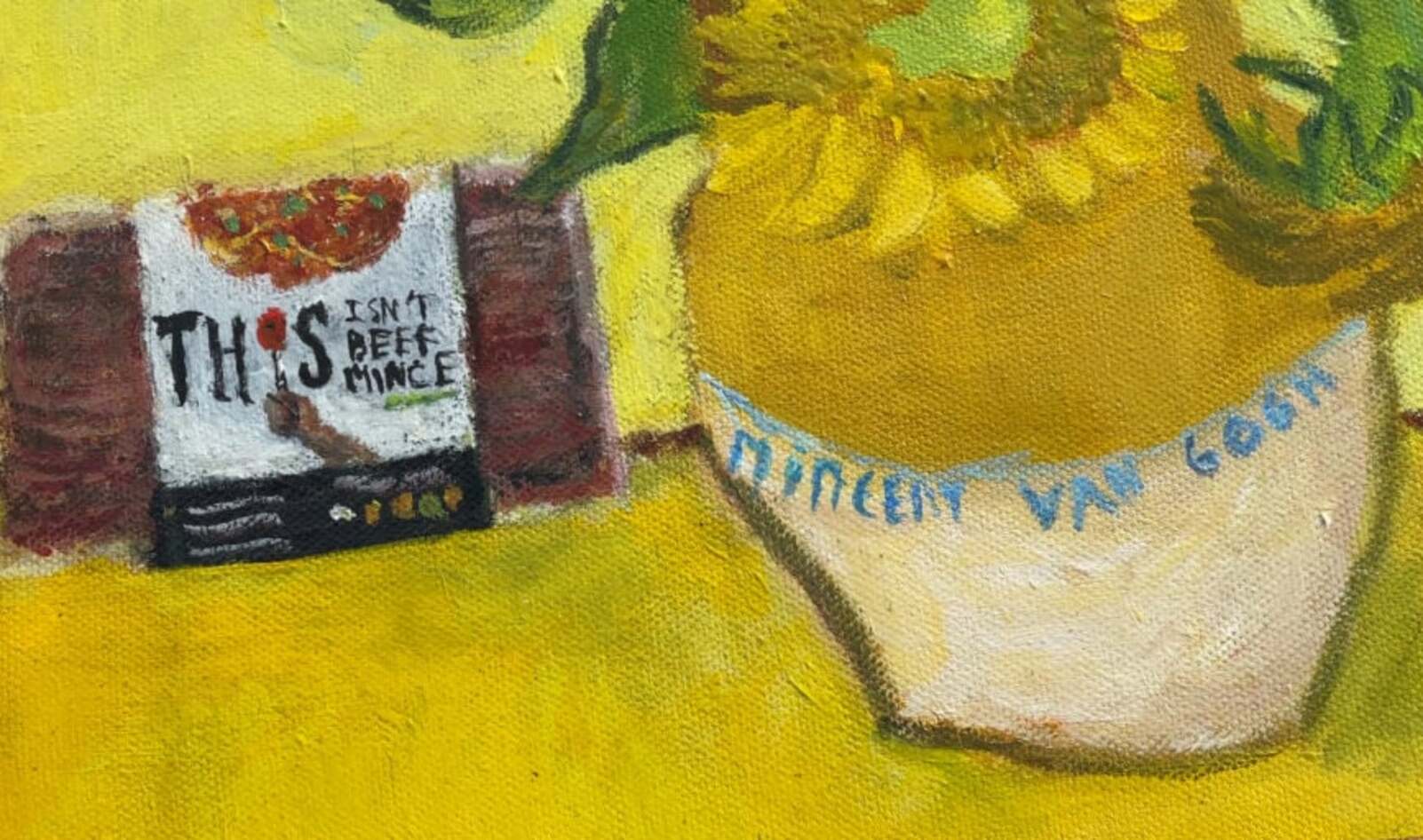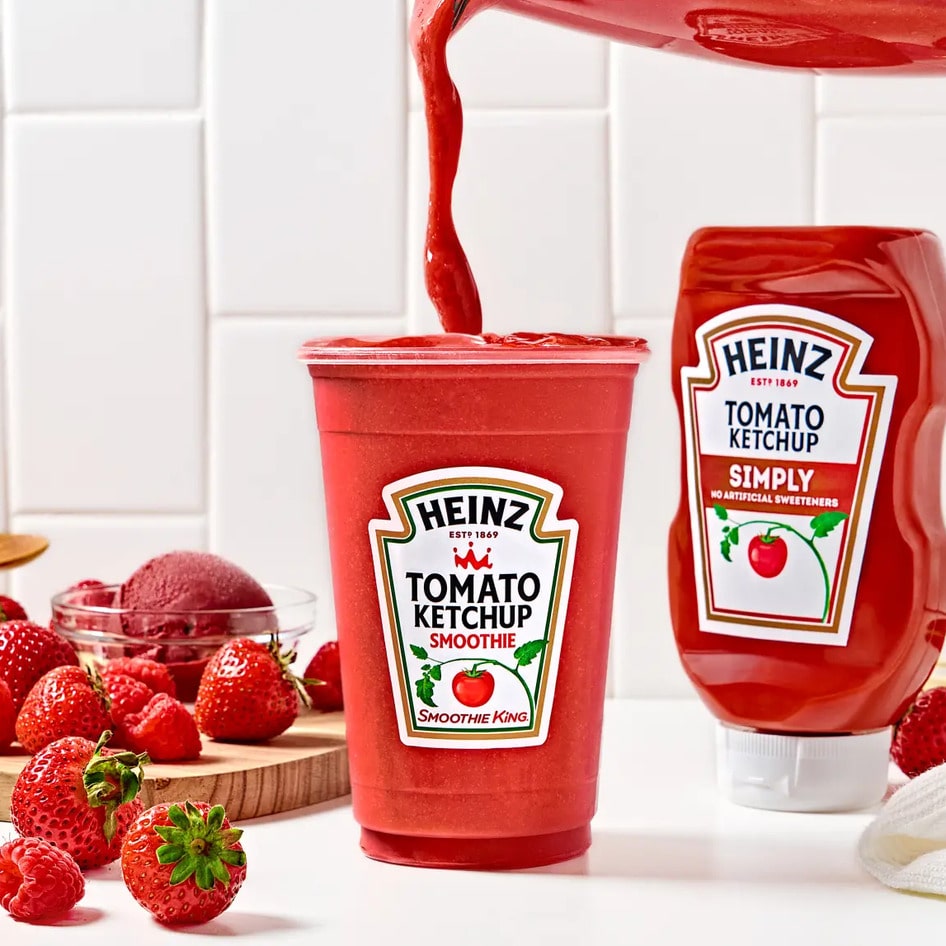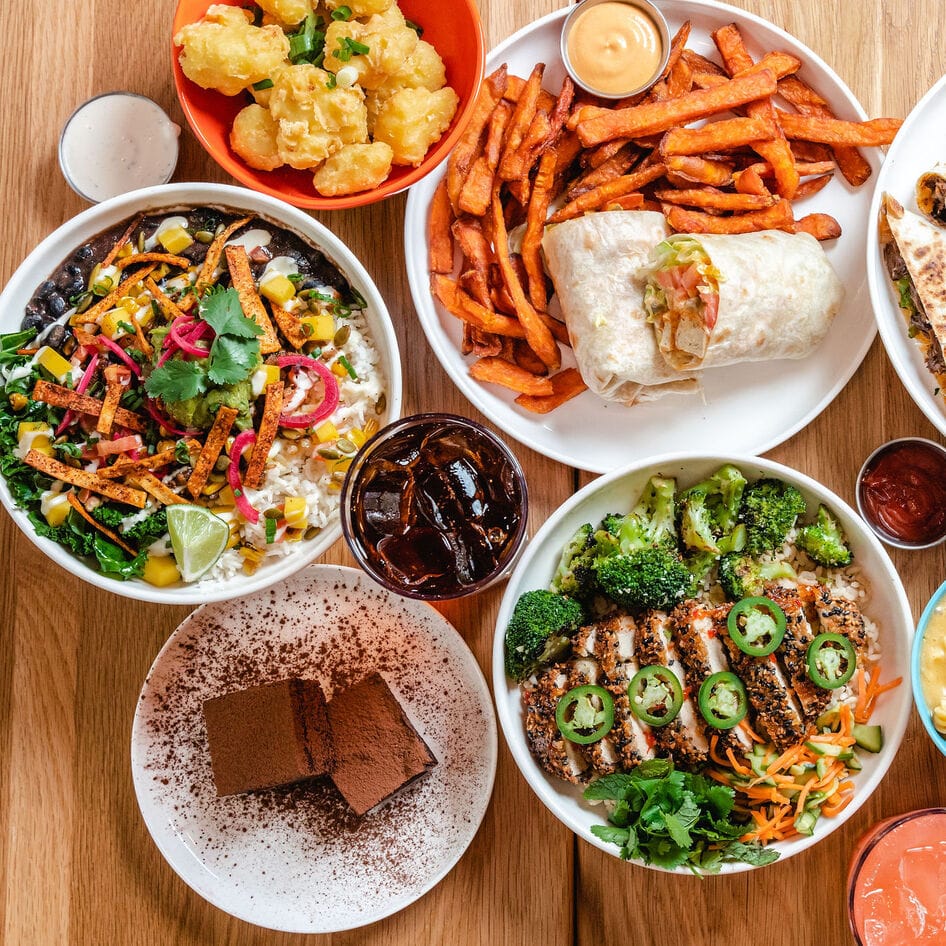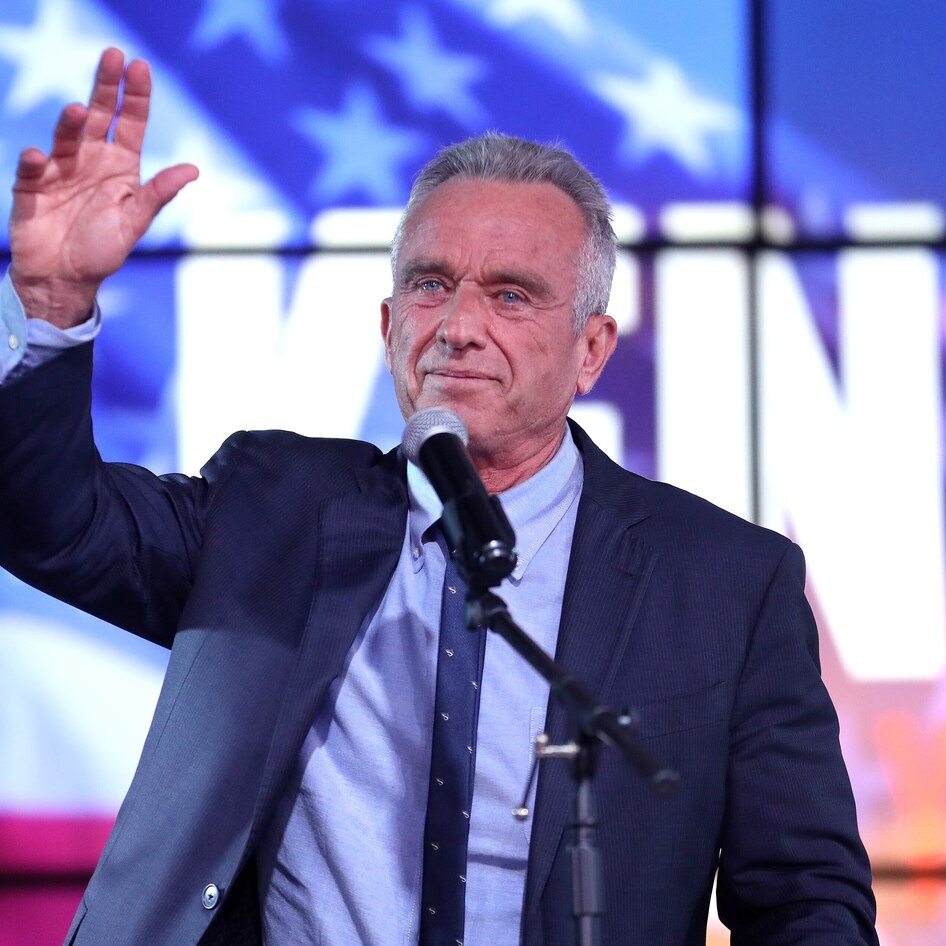World-famous anonymous street artist Banksy is a talented artist, there’s no doubt. But when you think about their work, it’s likely you think more about what it’s trying to say than what it looks like. From Girl With the Balloon to Love Is in the Air, the majority of Banksy’s works are political, hard-hitting, and poignant. With each provocative piece, the artist has something to say. And in the vegan food industry, it seems that more brands are adopting this thought-provoking approach when it comes to promoting their products.
Just recently, vegan meat brand This pulled a controversial stunt at the Van Gogh Museum in Amsterdam. The brand placed a replica of one of the artist’s greatest works, his self-portrait, in the museum, only in This’ version, he was wearing a red Trump-esque cap with the slogan: “Make plant-based great again.”
“We got away with it, a fake Van Gogh in the Van Gogh Museum,” Andy Shovel, the brand’s co-founder, said in a statement. “It was up for almost an hour before being removed, so by our calculations, thousands of people saw our masterpiece.” It is the second time the vegan brand has pranked the museum. In 2022, it hung its own version of Van Gogh’s Sunflowers in the gallery, too.
According to Shovel, the recent stunt was in honor of the Dutch National Week Without Meat and Dairy, an initiative created by a foundation of the same name that encourages people across the Netherlands to give up animal products for one week. The organization aims to raise awareness of the monumental impact that animal agriculture has on the planet.
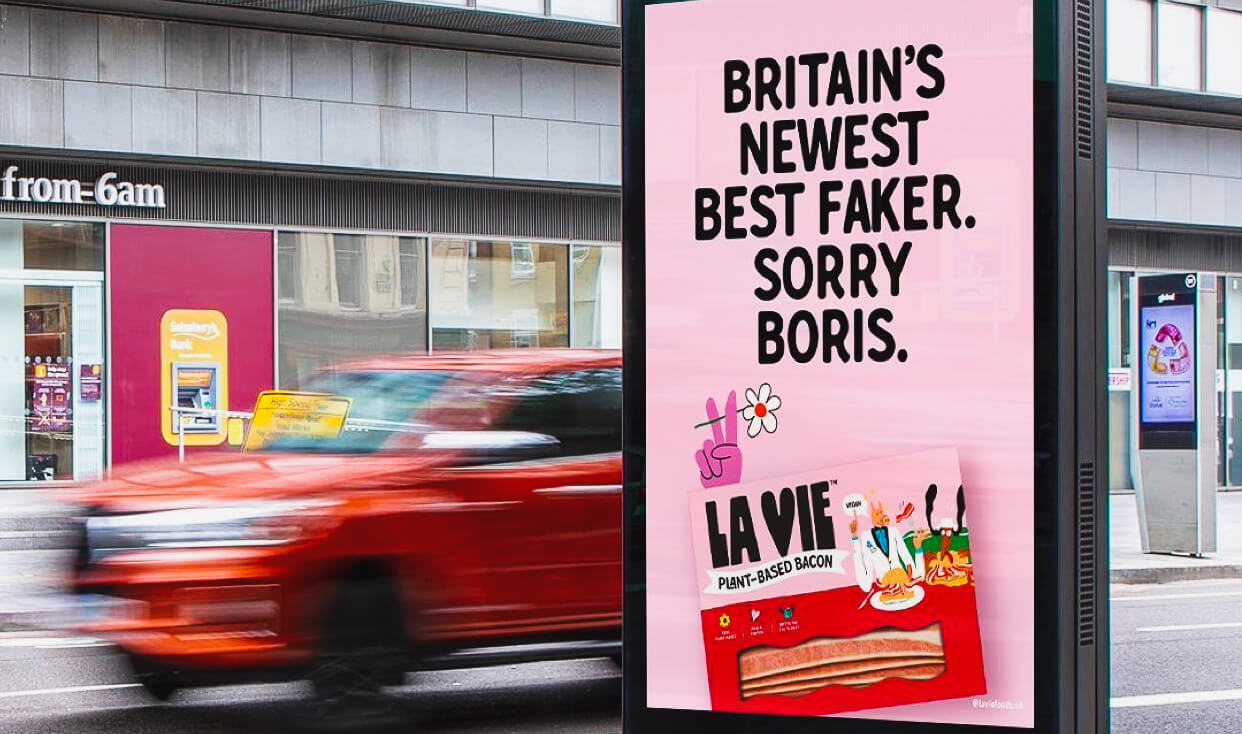 La Vie
La Vie
The need for impactful vegan marketing campaigns is greater than ever
According to the United Nations, the livestock industry contributes 14.5 percent of global greenhouse gas emissions. For context, aviation contributes two percent. Animal agriculture is also a leading driver of deforestation and habitat destruction. In the last six years, research suggests that more than 800 million trees have been cut down in the Amazon rainforest to produce Brazillian beef for the world’s food supply.
With all of this in mind, it’s no surprise that plant-based brands have resorted to provocative, Banksy-esque marketing tactics. The situation is serious. In 2022, researchers from the University of Bonn in Germany concluded that the world’s wealthiest countries must cut meat consumption by at least 75 percent for the sake of the planet.
“If all humans consumed as much meat as Europeans or North Americans, we would certainly miss the international climate targets and many ecosystems would collapse,” study author Matin Qaim said in a statement at the time.
This is not alone in provocative marketing approaches. In 2022, before it launched in the UK, French vegan bacon brand La Vie rolled out 2,000 pink billboards across the country, commenting on the state of the UK’s political and economic situation.
The billboards included phrases like “Britain’s newest best faker. Sorry Boris,” referring to the country’s controversial former prime minister Boris Johnson, and “Sure, our parents got the property boom, but we’ve got vegan bacon that tastes like bacon.” This, of course, refers to the UK’s ongoing housing and cost of living crisis.
Popular vegan milk brand Oatly is no stranger to making big statements with its marketing campaigns, either. In 2022, the brand launched an ad campaign that showed kids smuggling oat milk into schools. The ads aimed to drum up support for the inclusion of plant-based drinks in the European Union’s school food program.
“The future of our children and grandchildren depends on the choices we make today,” Oatly’s Director of Public Affairs and Sustainable Food Cecilia McAleavey said at the time. “The IPCC recognizes that more policies are needed to support a shift towards plant-based diets to address climate change. We cannot continue with subsidies that promote animal-based diets and do not recognize the needs of all children.”
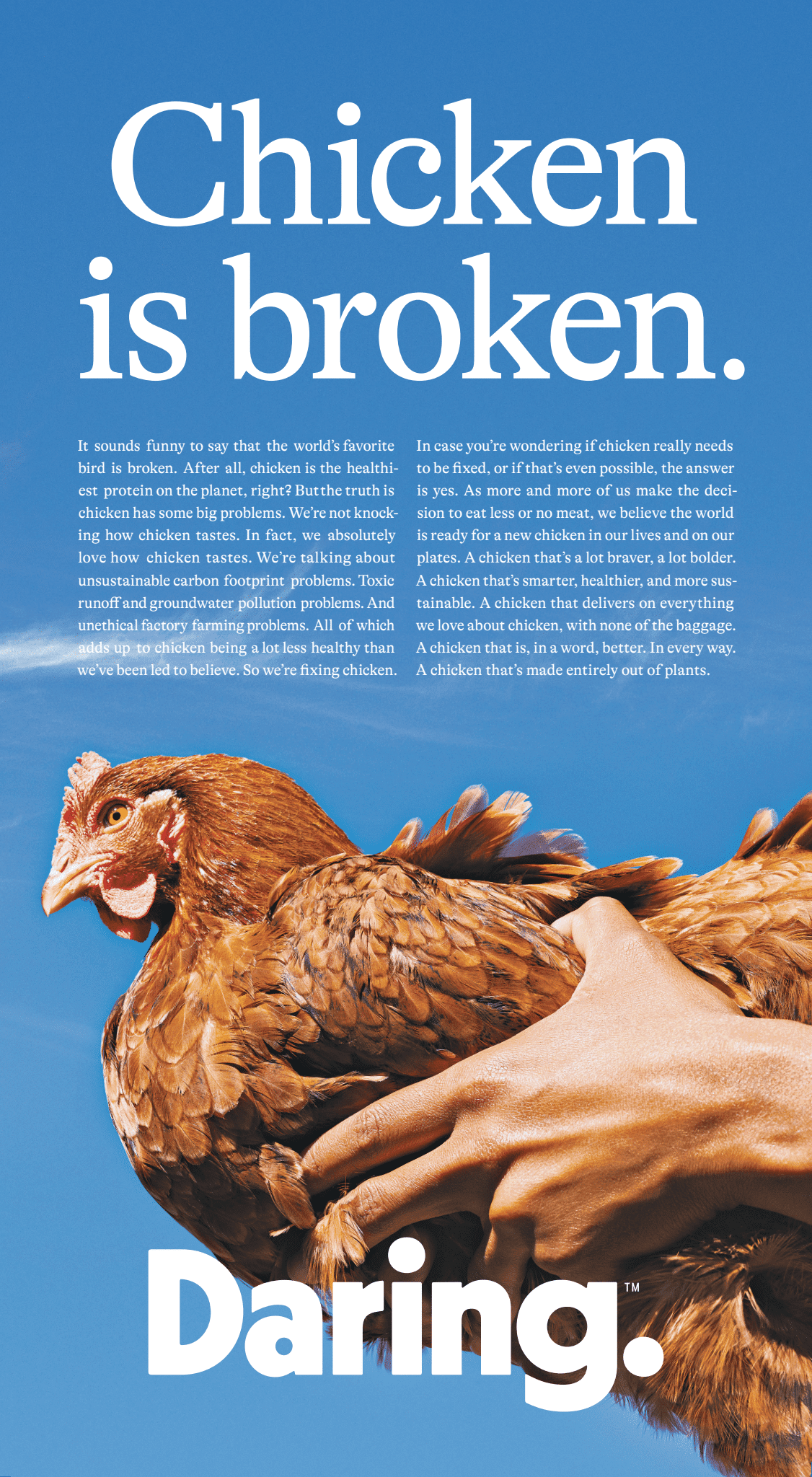 Daring Foods
Daring Foods
Tackling a public health issue
In the US, vegan chicken brand Daring once took out a full-page advertisement in the New York Times with the headline “Chicken is Broken.” The campaign called out the industry’s carbon footprint, as well as its issues with toxic runoff, groundwater pollution, and unethical factory farming.
Right now, in the US, more than 99 percent of the meat products on the shelves come from factory-farmed animals. This is not just a problem for the environment, but it’s a public health issue, too.
Multiple experts have called out industrialized farming practices for an overuse of antibiotics, which are given to animals to help prevent the spread of disease, but could eventually help fuel catastrophic antibiotic resistance in humans. There’s also the risk of another pandemic-causing virus emerging from factory farms.
In 2021, South African scientists warned that the expansion of intensive animal agriculture creates the “perfect breeding ground” for disease. “The bird-flu virus has a mortality rate of around 60 to 65 percent,” said researcher Robert Bragg at the time. “It has not yet developed human-to-human transmission. If this virus does develop human-to-human transmission, we could be in for a really serious pandemic.”
So while vegan brands have to offer great-tasting, innovative products, it’s also becoming more and more evident that their marketing can, and should, be a vehicle for real advocacy and political activism, too. Like Banksy’s street art, it’s likely that with each passing year, the campaigns will become more and more provocative, as the climate situation becomes more and more urgent.
For more on vegan advertisements, read:
JUMP TO ... Latest News | Recipes | Guides | Health | Subscribe

